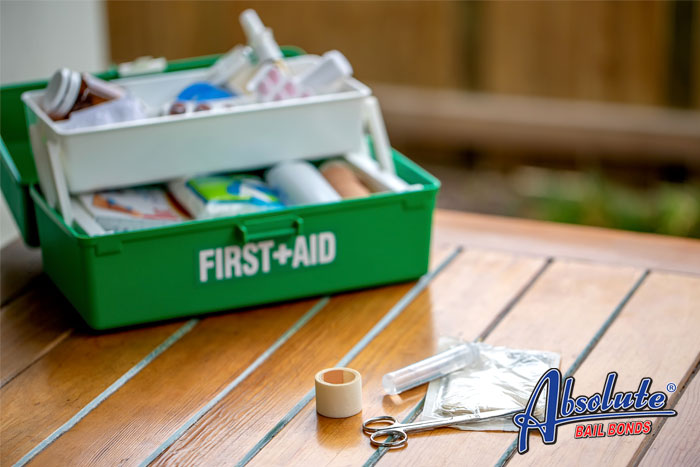
Mail Theft in California
Lawmakers aren’t fooling around when it comes to people messing with other people’s mail. The issue of mail theft is explored in US Code Section 1708. It’s important to understand that because mail theft involves the United States Postal Service, a federal agency, mail theft is considered a federal offense. The State of California will likely add a few charges as well.
What is Mail Theft
If you read US Code 18 Section 1708 you’ll learn that taking any piece of mail that wasn’t sent to you is considered mail theft. It doesn’t matter if the mail is taken directly from a post office employee, snatched from a mailbox, or snuck of a mail truck. It’s all mail theft.
Additional Offenses That Are Frequently Added to Mail Theft Charges
It’s rare for a person to be charged with just mail theft and nothing else. Identity theft is one the charge that’s most commonly linked to mail theft. Identity theft charges are usually added if the stolen mail included:
- Birthdates
- Social security numbers
- Birth certificates
- Tax I.D. numbers
- Banking/credit card account information
- Death certificate information
- School I.D. numbers
- Driver’s license numbers
Other charges that have been added to mail theft include:
- Assault
- Breaking and entering
- Embezzlement
- Deception
- Fraud
Federal Consequences of Mail Fraud
The government is messing around with mail theft. They want everyone to think twice about what they could lose before they snatch up a piece of unattended mail. If you’re found guilty of federal mail fraud, the maximum sentence includes:
- Up to $250,000 in fines
- Up to 5 years in a federal prison
Getting Charged with Mail Theft in California
California lawmakers are serious about mail theft. Anyone who is caught stealing someone else’s mail will likely find that in addition to dealing with the federal court, they’ll also be charged by the state. California’s Penal Code 530.5e PC states that “every person who commits mail theft, as defined in Section 1708 of Title 18 of the United States Code, is guilty of a public offense, and upon conviction therefor shall be punished by a fine, by imprisonment in a county jail not to exceed one year, or by both a fine and imprisonment.”
The interesting thing about California and mail theft is that it is one of the only theft type crimes where the punishment isn’t determined by the monetary amount of the crime. The state doesn’t care if you stole a couple of thousand dollars worth of mailed paychecks from your neighbor or if you simply swiped a handful of sales flyers from an unattended mailbag. The consequences will be the same.
What if Mail was Delivered to the Wrong Person?
If a postal employee delivers the someone else’s mail to you, don’t panic and assume that you’re going to be charged with mail theft. This is an honest mistake. It’s also something you need to take care of immediately. As soon as you discover the error, contact the post office, and alert them to the situation. You’ll be instructed on how to return the mail to the post office. What you shouldn’t do is throw the mail away or to put the mail in your neighbor’s mailbox.

Falling Asleep Behind the Wheel in California
We’ve all done it. Gotten behind the wheel and driven when we were tired. Most of the time rolling down the window, cranking up the radio, and indulging in a massive amount of caffeine is enough to get us safely where we need to be. The problem is that some people don’t make it to their destination. Some people fall asleep while they’re behind the wheel and find themselves in serious legal trouble.
The Dangers of Falling Asleep While Driving
People constantly warn us about driving while intoxicated. We know it’s dangerous and know that it’s a serious traffic offense. People rarely discuss the fact that driving while fatigued is equally dangerous. In most cases driving is monotonous. It’s so easy to let your eyes close for a second. That’s all it takes for us to fall asleep and get into a bad accident.
If you’ve ever driven while drowsy you’re not alone. The National Highway Traffic Safety Administration (NHTSA) reports that approximately 100,000 police-reported car accidents involved drowsy driving. It’s estimated that 72,000 of those accidents led to severe injuries and that 1,600 involved fatalities.
How California Handles Drowsy Driving Cases
Each time you get behind the wheel of your car, you’re entering into an unspoken, but legally binding contract with everyone that you’re fit for driving. Getting behind the wheel means that you plan on following all posted traffic laws, that you’ll stay alert, and that you’ll drive defensively. This means you won’t be distracted, you’re not intoxicated, and you’re not fatigued.
Failing to keep up your end of the agreement results in traffic tickets and possibly jail time.
If you’re caught driving while drowsy in California, at best, you’ll get a ticket for reckless driving. According to the state, you’re driving recklessly any time you, “drive any vehicle in a manner that exhibits willful or wanton disregard for the well-being of others on the roadway.” The state considers falling asleep and an example of willful or wanton disregard.
If you’re caught driving while drowsy, the best you can hope for is a traffic ticket that will cost you $145. That’s the best-case scenario. If you caused an accident, injured someone, created an intensely dangerous situation, or did a great deal of damage to someone else’s property, the consequences will be much more severe. The state has the option of sentencing you to 90 days in jail and charging you with a $1,000 fine.
Depending on your driving record, the driving while drowsy episode could result in you losing your license. If you injured or killed someone, you could face both manslaughter charges and a civil lawsuit.
The next time you think about driving while exhausted, you should reconsider and take a nap instead.

Are You Impacted by California’s Mandatory Reporting Law?
You just watched your neighbor commit a crime. You know what they did was illegal, but you aren’t sure what you should do about the situation. You don’t want to get anyone in trouble. On the other hand, you know you don’t like the idea of living next to someone who blatantly breaks the law.
Assuming that your neighbor didn’t do break a minor law, like jaywalking, it’s in your best legal interest to report the crime to the authorities. The reason for this is simple. If your neighbor gets caught and the police find out that you’ve been turning a blind eye to the situation, you could land in hot water. This is especially true if your neighbor is abusing a roommate/parent/friend, or if they are involved in a child endangerment/neglect situation.
Some people don’t realize that their chosen profession requires that they report any criminal activity that they have knowledge of. California created Mandatory Reporting laws that require specific professions to report criminal activity. Professionals who are bound to adhere to the Mandatory Reporting Laws include:
- School officials
- Anyone who works in law enforcement
- Social workers
- Members of the clergy
- Firefighters
- Therapists
If you are a member of any of these professions, you’re legally required to report instances of:
- Extreme verbal abuse
- Physical abuse/assault
- Sexual abuse
- Child neglect
- Child endangerment
Failing to obey the Mandatory Reporting Laws means could come at a steep price. If you’re found guilty, you could be sentenced to spending 6 months in a county jail and be charged a $1000 fine.
What if You Discourage Someone From Reporting a Crime
If someone you know has knowledge of an abuse or child endangerment crime, and you convince them to stay quiet, the law can come after you. If found guilty of willfully preventing someone from stepping up and reporting a crime to the proper authorities, you’re looking at a year in jail and a $5000 fine.
Mandatory Reporting Laws Require that You Think Before you Confide in Someone
If you have broken a law or think you know someone who has, you need to be aware that if you discuss the situation with someone who’s profession forces them to report the alleged crime, they will likely have to mention your name. The police will likely be very curious about why you failed to report the abuse right away. It will look better and not put your friends in an awkward position if you report the situation yourself.

Laws Every California Pet Owner Should Know
Owning a pet is a wonderful experience. In exchange for providing for their physical needs, your pet gives you unconditional love and great joy. Pet owners are usually healthier and happier than California residents who don’t own pets.
While there are lots of perks associated with owning a pet, there are also several California pet laws all pet owners need to know.
Your Dog Must Be Properly Licensed
If you own a dog, it has to be licensed. Failing to stay on top of your dog’s license could result in your county charging you a fine. The only dogs who are exempt from the state’s licensing laws are puppies who haven’t turned four months old.
All Dogs Have to be Up to Date With Their Rabies Vaccination
If you own a dog, you’re responsible for making sure it has had a rabies vaccination. In some areas, they have to get a rabies vaccination every year. In other areas, you can go for three years between the vaccine. The vaccine has to be given by a certified vet. Without proof of the rabies vaccination, you can’t purchase a dog license.
You Can’t Abandon Your Pet
Once you accept responsibility for your pet, you are expected to keep the pet for the rest of its life. If you can’t you need to rehome it. You’re not allowed to simply abandon it. If you’re caught abandoning an animal, you will face animal cruelty charges.
You’re Responsible for your Pet
You’re expected to be in control of your pet at all times. If your dog ruins someone’s personal property or bites someone, it’s your fault. Civil charges can be brought against you.
California’s Spay/Neuter Laws are Changing
California lawmakers have become increasingly aware of the pet overpopulation problem in their state. They hope that tougher spay/neuter laws will reduce the number of strays animal control deals with each year. All shelters are required to provide proof that the animals they’re putting up for adoption have been spayed or neutered.
California’s pet laws are constantly changing. If you own any type of pet, it’s in your best interest to routinely review both local and state pet ownership laws.

The Right to Remain Silent
We’re all familiar with the Miranda Rights, which basically grants us the ability to not tell the police anything if we’re arrested. While we’ve heard thousands of television cops recite the famous words “you have the right to remain silent” few of us actually know what that means.
The History of the Miranda Rights
The Miranda Rights take their name from Ernesto Arturo Miranda. He was arrested in 1963 and placed in a line-up. The victim selected Miranda. When the police questioned him, he confessed to the crime. It looked like an open and shut case, when in fact, it turned into a case that forever changed police procedure in the United States.
After Miranda was found guilty of raping and kidnapping, his attorney argued that the case should have been thrown out because Miranda was never told that he had the “right to remain silent.” Instead of ignoring the claims, the case, along with three similar cases, made it to the Supreme Court. In 1966, the Supreme Court ruled that in situations like the one Miranda found himself in, the police can’t use a confession unless the accused has first been advised of their right to remain silent and reminded that if they confess, the confession can be used against them during the court case.
What the Right to Remain Silent Really Means
The right to remain silent doesn’t mean that the police can’t question you. The right to remain silent is designed to provide you with a layer of protection in two different circumstances.
If you are in court and under oath, the right to remain silent means you aren’t legally required to say something that could incriminate you in criminal activity. If you do say something, the prosecution can use the confession, even an inadvertent one, against you. In this type of situation, the right to remain silent is commonly referred to as Taking the Fifth.
The second situation where the right to remain silent comes into play is if you’re being deposed by the police. They’re allowed to question you, but you don’t have to say anything that could be considered a confession to a crime.
When do the Miranda Rights Come into Play?
The police are supposed to read you your Miranda Rights as soon as they make a move to take you into custody. Being taken into custody means that you don’t have the ability to leave when you decide that you’ve had enough. You’re right to remain silent kicks in as soon as the police put handcuffs on you, which is why it’s important to remain cool, calm, and collected while they drive you to the police station. You don’t want to lose your temper while you are in the back of the car that could be used against you.

Understanding California’s Labor Laws and How They Impact your Paycheck
It doesn’t matter if you’re an employee or an employer, it’s important to understand California’s labor laws. The problem most people encounter is that the state hasn’t gone out of its way to break these laws down in a way that is easily researched or understood.
Minimum Wage
California is a bit peculiar because instead of creating a flat minimum wage that covers everyone, California has two different minimum wages. The first is $13. The second is $12. The amount of minimum wage an employer pays is based on the size of the business.
The problem with this system is that it urges California employers to keep the number of employees under 24 which can often discourage them from trying to expand their business or to take on additional employees during the times that they are busy.
The extra $1 an hour gives large employers an edge when they’re hiring. Getting paid an extra $1 an hour is a big enough difference that it can cause individuals who are in the process of looking for a job to automatically reject any business that isn’t required to pay the full $13 an hour in the minimum wage.
Further complicating the process is that many cities and counties have a local minimum wage requirement. A perfect example of this is San Francisco where the minimum wage is $15 an hour.
The State mandates that anyone who works over 40 hours a week must be paid an overtime rate that is 1.5 times their regular hourly amount.
Paid Training
There was a time when some businesses felt that they didn’t have to pay employee trainees. This made it impossible for novice employees to earn a living during the training phase, especially if the training took weeks to complete.
California law states that if an employee is getting trained and is 20 or younger, the employer must pay them at least $4.25 an hour. The maximum amount of time the employee can be paid a training wage is 90 days.
Minimum Wage and Students
California lawmakers recognize that many full-time students have to work, but they also realize that working around a student’s schedule can create some interesting problems for employers. In an attempt to encourage employers to hire full-time college and high school students, the employer only has to pay 85% of the minimum wage. This amount is good for 20 hours of work per week.
Full-time high school or college students who work part-time may be paid 85% of the California minimum wage (as little as $11.05 per hour) for up to 20 hours of work per week at certain employers (such as work-study programs at universities).
Employers are required to post wage requirements in a highly visible area.
In addition to a minimum wage, your employer also has to meet California OSHA safety standards and provide time for state-mandated breaks.

Staying Safe During California’s Wildfire Season
Each year, California has wildfires that attract national and sometimes even international media attention. The various media channels like to talk about what might have caused the wildfire, how big it’s gotten, and how teams are desperately working to fight it, as someone who lives in California, you’re first priority is doing everything possible to keep yourself and your loved ones safe during this year’s wildfire season.
Prepare Early
Don’t wait until you can hear the roar of the wildfire bearing down on you to start preparing. Wildfires spread quickly and they can also start quickly. Don’t wait until you’re in a high-risk area to start preparing for a wildfire. As soon as you move to California, you need to create start preparing for the possibility of a fire.
Early California fire preparations include:
- Turning your property into a defensible space
- Having an evacuation plan in place
- Keeping your vehicle prepped in case you have to evacuate
- Having a bag packed with life essentials in case you need to evacuate
- Making sure your personal property is covered by property insurance
Creating a Defensible Space
You want to surround your property with a defensible space. This space serves as a buffer between an approaching fire and your home. The space shouldn’t have any items or vegetation that’s likely to burn. The defensible space should extend at 30 feet past your house.
Packing Evacuation Supplies
You don’t have enough room in your car for all of your personal belongings. Limit what you need to one bag per person. Most of the time you can keep his bag in your closet, but if it looks like there is a chance that you’ll have to evacuate, stow the emergency fire bag in your car. Fire moves quickly so each second you save is important.
Items you should have in your emergency fire evacuation bag include:
- A change of clothing
- Cash/credit cards
- An extra charger for your cell phone
- The contact information for your insurance company
- A first aid kit
- Any medication you take
- Water
- Food
- A flashlight
Keep Tabs on your Neighbors
Fire doesn’t care who it hurts. It’s up to you to keep in touch with your neighbors and make sure that they’re able to protect themselves from a wildfire. Whenever possible, offer to help them evacuate. Taking a few seconds to contact your neighbor’s emergency contact, or helping load up their car helps save lives.
Prepare your Pets
You can’t afford to forget about your pets during an emergency fire evacuation. They can’t fend for themselves. You should also be prepared for even the most docile pet to become stressed as you evacuate. They might not understand exactly what is going on, but they do know that a fire is approaching and that you’re stressed.
Lock your pets in a different part of the house while you prepare to evacuate. This prevents them from bolting out the door and getting lost while you’re packing up your vehicle. When you’re ready to load your pets in the car keep them leashed or in a carrier. Don’t assume they will just follow you. Each time you stop the car for gas, make sure your pets are restrained before you get out of your car.
It’s a good idea to get your pet micro-chipped and to write its name and your phone number on their collar before you evacuate.
Before you drive away from your home, take a couple of seconds to double-check that all people and pets are loaded in your car.
Even though it’s hard to stay calm when you’re evacuating, you really need to. The calmer you can keep yourself in this situation, the smoother the evacuation will go.

California Earthquake Survival Tips
California is known for its earthquakes. Unlike wildfires which can be somewhat predictable and avoidable, there’s never much warning before an earthquake occurs. Even with the surprisingly accurate MyShake earthquake phone app you usually have less than a minute to prepare yourself for the tremor.
Early preparation and common sense is your best line of defense when it comes to surviving a California earthquake.
Keep Your Home in Good Repair
Routinely go through your home and any outbuildings and make sure that they are earthquake ready. The house met the current earthquake building guidelines when it was constructed, but it’s up to you to make sure that it stays earthquake ready. The best way to make sure your home remains standing during an earthquake is by staying on top of all home repairs.
Secure Your Space
At least once a week, go through your entire house and make sure it’s earthquake-proof. Make sure there is enough room in closets for you to fit into the small space during an earthquake. Double-check that you haven’t placed anything on a high shelf where it could fall off and hit you during an earthquake.
Create a Disaster Plan
Creating a disaster plan for an earthquake isn’t easy. You have no way of knowing where you or the rest of your family will be when an earthquake takes place. What you can do is arrange a place where everyone will meet following a large earthquake. You can also make sure that your entire family has a communication plan in place that will allow you to connect with one another after the earthquake.
Have Emergency Supplies on Hand
Create small emergency packs and store them throughout your home. The packs should contain non-perishable food, first aid supplies, a flashlight, batteries, and water. You should keep at least one of these packs in each of your rooms as well as in your car.
Purchase Earthquake Protection
Make sure you’re insured against an earthquake. This insurance means you’ll get reimbursed if your home is destroyed during the earthquake, making it possible for you to start over.
Lend a Helping Hand
Once you’ve successively survived a California earthquake, it’s time to help others. Check on your neighbors and make sure they’re okay. Offer to shelter to those who need it. Volunteer with earthquake survival groups. The sooner everyone pitches in to help, the sooner the state will recover from the earthquake.

Can You Force Your Employees to Work During a Government Ordered Lockdown
Covid-19 has created some big legal questions that no one really considered prior to the pandemic hitting the United States in March. One of the questions both employers and employees are asking is if employees can be required to work during the government ordered lockdown.
The answer isn’t as straight forward as most people might assume it is.
Working From Home
If it turns out that a business’s employees have the ability to work from home, they can be told that they have to work during the government lockdown. One of the surprising things about the pandemic is how many businesses who thought they needed to have their employees come in every single day are finding that it isn’t necessary at all. Some have even reported that having employees working from home has increased productivity and they’re exploring if they should simply continue the work at home option even after the pandemic ends.
If You’re an At Risk Employee
The simple reality is that some people are at a much higher risk of both contracting COVID-19 and being hospitalized with their conditions. The good news is that the Americans Disabilities Act does provide some protection for these employees. As long as they have a recognized and registered health problem that puts them at risk for COVID-19, the employee has the right to request that their employer explore other options. This can include placing them in a different area where they’re better able to social distance from other employees, moving them to a new position, or granting a leave of absence.
If you don’t have a condition that’s recognized by the ADA, your employer may have the right to insist you continue to work.
The Families First Coronavirus Response Act
The Families First Coronavirus Response Act was created to make it a little easier for employees to tell their employers that they wouldn’t be working during the lockdown. The law is designed to provide employees with some leverage against employers who want them to work during the lockdown. The law is specific to COVID-19 and provides additional assistance with things like food assistance, healthcare assistance, and even help getting unemployment if the employee decides that their being unfairly forced to work.


